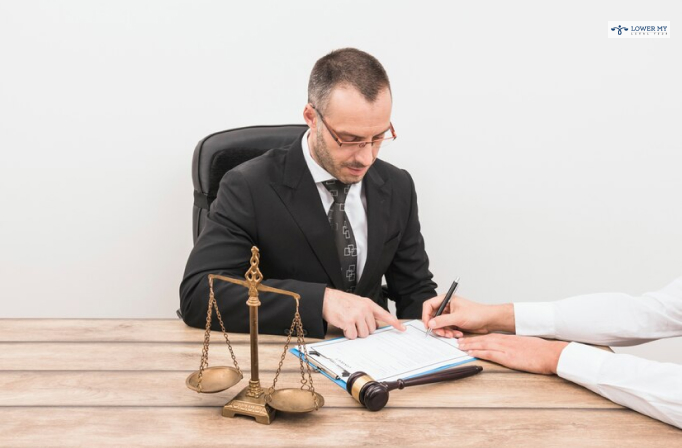Have you ever been pushed by a person randomly on a subway? Or someday you suffered a motor vehicle accident that led you to get severely injured? Well, don’t worry we have got you covered.
Assault is an illegal act of causing physical harm. Even threatening someone to harm physically is also a form of assault. If you get assaulted by someone, then you can take them to court for both criminal prosecution and civil liability.
However, assault is not something that is just limited to this. In this article, we will talk about the different types of assault and what are the legal consequences of it. You’ll also know about the various implications of assault and how to deal with them.
What is Assault?

It is an illegal way of harming someone physically or even threatening to do so. It’s a mixed bag between crime and tort and committing it can result in both criminal prosecution and civil liability.
An assault can be primarily committed with or without a weapon. If you’re wondering about an assault weapon, then let me tell you ANYTHING. You can use anything as an assault weapon.
Remember, deliberately inflicting fear or apprehension on a person is also considered an attempt to commit battery.
Want to hear something interesting? The definition of assault is the same in criminal law and in tort law as well.
Types of Assault

Assault comes in every form in every way. Here are some different types of assault and how you should keep them in mind when you’re suing somebody for it.
Verbal Assault
This is the most common type of assault you might face. To state the obvious from the definition, verbal assault counts as a threat given verbally. Remember, physical assault might not occur at the same time, but verbal assault will cause serious fear and apprehension that can emotionally scar you. For this, you can even sue someone in court.
Simple Assault
In simple assault, it doesn’t always involve a weapon. It can occur to anyone. If you actually got physically harmed in this phenomenon is not relevant here. You can either be slightly injured or simply just fear your injury. For example, if a person comes and threatens you to run you over with their car.
Aggravated Assault
This is one of the most dangerous kinds of physical assault. In this case, you as a victim would be attacked with a lethal weapon like a knife or a gun. If the attacker has the intent of killing you or causing you serious harm, then it is termed as an aggravated assault. Your injuries as a victim will be extreme.
Sexual Assault
In this case, any form of sexual touch or intercourse happening without the consent of either party is sexual assault. It is one of the most challenging types of assaults which can sometimes become an intimidating act for the victim to ask for compensation.
What To Do When You’re Getting Assaulted?

Being an assault victim can leave you worried. You’re scared, angry and even feeling lost in some cases. You’re trying to cope with it on your own, but sometimes it’s a tad bit difficult. Here are some things you can do when you’re being assaulted by someone.
Talk to Someone Who You Trust
If you’re a minor, we’d recommend you talk to an adult about this. Tell them what you’re facing and get the necessary help. This goes the same way for someone who is not an adult. Talk to someone whom you confide with and make sure that they don’t tell anyone about it.
Reporting to the Police
At first, it might sound very intimidating, but it is the only way to address your assault. Also if you’re at an immediate risk of getting hurt, call 911.
Get Medical Help
See a doctor and ask for remedies. If you’re severely injured, go to a doctor or go to a hospital. Your injuries might need immediate action.
Document Your Assault
It’s integral that you closely document your assault. You need to write down everything you faced during the assault with date and timestamp. Leave no detail and write all about it elaborately. This would help in making up your case in front of the court.
Who is an Assault Lawyer?

An assault lawyer is a legal professional who deals with your assault charges. An assault lawyer is primarily a criminal defense attorney who specifically specializes in assault.
They legally represent you in court. They also defend your rights in court and ensure that you get fair treatment in the eyes of the law.
As an assault lawyer, they have a deep understanding of criminal law and they can strongly analyze any form of evidence. They conduct an independent investigation of the alleged assault. They also gather witnesses and negotiate with the prosecutor from the other side.
Roles and Responsibilities of an Assault Lawyer

As an assault lawyer, they have tons of roles and responsibilities. Let’s see what they are:
Legal Representation
Stating the obvious, your assault lawyer legally represents you at court and goes along with the hearings and every legal obligation you might need to fulfill.
Investigate the Case On Your Behalf
To make a strong case on your behalf, your assault attorney gathers necessary evidence inclining towards your favor. They contact witnesses and collect various testimonies that will prove important for your case.
Evaluating the Technicalities of the Case
Every case has both its legal and its general sides. Your lawyer evaluates the one that inclines in your favor and finds a feasible winning strategy. They carefully assess the circumstances that come along with the charges and treat them as uniquely as possible.
Being Up-to-Date With Legal Regulations
As an assault lawyer, it is crucial that they have the proper requisite skills to properly represent you. They have to build up an appropriate strategy to address the best-case scenarios for those legal implications.
Keeping the Clients Informed About the Case

Keeping you in the loop with the case is an important aspect of an assault lawyer. Your lawyer should always communicate with you about your case developments and explain the procedure in detail.
Upholding Your Privilege and Privacy
As an assault lawyer, it is their duty to uphold your privacy and privilege. They have to do it without risking any form of retaliation. They will hold up all the laws that adhere to the privacy and privilege of the client.
Protecting Your Interests
They should always look after and protect your overall interests. It is integral that they shouldn’t engage in anything that might result in a conflict of interest and also in the interest of the defendant.
Legal Consequences of Assault

The legal consequences of assault vary from state to state. It can range from fines to even imprisonment. The punishments primarily depend upon the severity of the crime.
Whether a state would consider assault as a separate crime or as a battery would completely depend upon the severity of the crime.
Hence the state divides these crimes into misdemeanors and felonies. When you commit a misdemeanor, it carries a potential jail term of less than one year. It is subject to someone getting imprisoned for more than a year.
In case of an assault where there is no specific involvement of any weapon, these injuries are termed as misdemeanors. In some states, assault gets treated like an infraction. They’re however less offensive than misdemeanors and involve a brief jail time.
Defense Against an Assault Charge
It’s very simple to defend yourself against an assault charge. Here are some common ways you can take into account while you’re defending yourself from assault.
Self Defense
You can say in court that you acted according to self-defense. You can say that you used force to protect yourself. Hence, this defense applicable when used force is absolutely necessary for the threat.
Consent
You can even argue that when you attacked someone, the alleged victim consented to that. This defense is however not always applicable in cases of any bodily harm or injury.
Defending Others
In this case, you can argue that you were using force to protect your acquaintance from any harm. This would prove in court that the use of force was absolutely necessary and proportional to the threat.
Defending Property
You can even argue in court saying that you used a reasonable amount of force protecting the property from damage or any kind of theft.
Final Thoughts
So, there you have it! We think now you know all of its legal implications and the consequences you might face when you commit any. hope this blog was informative and helpful.
Read Also:






